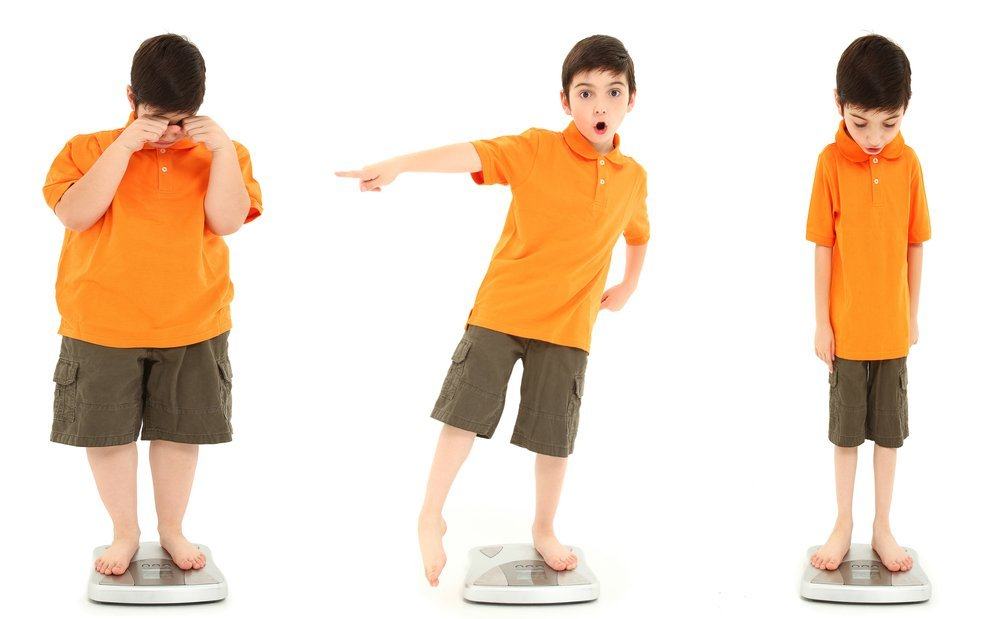Contents:
- Medical Video: Somalia: Children recover from acute malnutrition
- What is malnutrition?
- Malnutrition
- Excess nutrition
- What is the impact of malnutrition on children?
- Impact of malnutrition in the short term
- Impact of long-term malnutrition
- How to prevent malnutrition in children?
Medical Video: Somalia: Children recover from acute malnutrition
Has your child received enough nutrition? There are still many small children who suffer from malnutrition and also excess nutrition, this is called malnutrition. Malnutrition in children can occur because of a poor diet from small. This can cause the child's growth and development to be disrupted.
What is malnutrition?
Malnutrition makes it difficult for a child's body to do normal things, such as growing and protecting the body from disease. Malnutrition can also prevent children from doing physical activity and learning.
Malnutrition is a broad term that describes a child's nutritional status, can be malnourished or over nutrition. Malnutrition can occur because children do not consume nutrition in a balanced manner. Poor diet can cause children not to consume food sources from a balanced group of carbohydrates, proteins, fats, vitamins and minerals.
Malnutrition
Malnutrition is more commonly interpreted as malnutrition. Malnutrition occurs because children do not get enough nutrition in their diet. Carbohydrate and protein intake of children is lacking in meeting their body's needs for growth and development. Or, the child's body cannot fully utilize the nutrients that have entered the body because the child has certain diseases.
Some diseases that can cause children to experience malnutrition are:
- Celiac disease. Children with celiac disease have problems with their intestines. The child's intestine cannot digest gluten (intolerance to gluten). You can find gluten in wheat, rye, and barley.
- Cystic fibrosis. Children with cystic fibrosis have difficulty absorbing nutrients because this disease affects the work of the pancreas. The pancreas is an organ that produces enzymes needed in digestion.
Excess nutrition
Yes, malnutrition also includes excess nutrition, although it may be very rare for people to regard excess nutrition as malnutrition. Even though your child has more than normal weight, not necessarily your child has a healthy body. Being overweight or overweight in children can occur because children only consume more calories than they need, but they don't consume enough vitamins and minerals. This makes the child not get a nutritional balance, so the child is malnourished. Again, poor diet can cause children to experience a lack of vitamins and minerals needed for growth and development.
What is the impact of malnutrition on children?
When a child's body experiences a lack of important nutrients, such as vitamins and minerals, all the organs in your child's body will be affected. Children's health can be disrupted, both in the short and long term.
Impact of malnutrition in the short term
The immune system decreases. Children who are malnourished have a weak immune system. Therefore, malnourished children have a higher risk of developing infectious diseases or it is easier to contract the disease. Children tend to experience a deficiency of vitamin A, zinc and iron.
Child growth is disrupted. Childhood is still a period of growth and development, so at this time children need a lot of nutrition. When a child cannot meet his nutritional needs, the child's growth and development is disrupted, children can experience growth delays. Malnourished children are also more likely to experience gastrointestinal infections. So, this makes the condition of the child worse because the child is more difficult to get enough nutrition.
Impact of long-term malnutrition
Child growth is disrupted. Disruption of children's growth in the long term can occur due to lack of important vitamins and minerals, such as vitamin A, vitamin D, magnesium, zinc, and iron. This can lead to a child's growth getting worse, such as in the growth of a child's bones. Children who experience malnutrition in the long run cannot improve their growth and achieve optimal growth. As a result, the child will have a short height (stunted).
Brain development is impaired. In addition to physical growth, the child's brain development can also be disrupted because the child is malnourished. The child's brain cannot develop optimally, as a result children in learning disabilities, have a low IQ, experience problems in memory and attention, poor language development, have difficulty in solving problems, and have poor achievements in school.
How to prevent malnutrition in children?
The best way to prevent malnutrition in children is to provide children with nutritious, balanced foods. Balanced nutritious food is needed to support children's growth and development. You as a parent must fulfill the child's nutritional needs, including:
- Carbohydrates, which can be obtained from rice, bread, noodles, pasta, and others
- Protein, which can be obtained from fish, chicken, meat, eggs, milk, tofu, tempeh, and others
- Fat (try healthy fats), can be obtained from fatty fish (such as tuna and salmon), avocados, nuts, and others
- Vitamins and proteins can be found in vegetables and fruits
READ ALSO
- Signs of Your Child's Poor Nutrition
- Why Fat Children Are Not Naturally Healthy
- 5 Foods that Provide Nutrition for the Child's Brain












